Warren Wilson Boling Jr
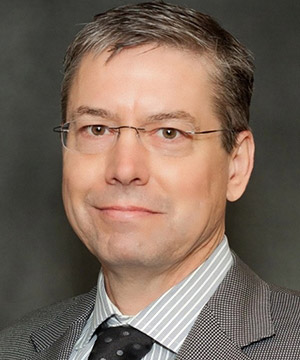
Dr. Boling earned his MD from Texas Tech University Health Science Center, School of Medicine, in 1991. After medical school, he completed a surgical internship and neurological residency at University of Kentucky Medical Center. He then went on to McGill University, Montreal Neurological Institute, where he was a research fellow in epilepsy and functional neurosurgery. In 2000 he also completed a clinical and research fellowship in the department of neurosurgery at University of Melbourne and Repatriation Medical Centre. Dr Boling returned to Montreal where he was an Assistant Professor of Neurosurgery at McGill University and Montreal Neurological Institute. He then moved to West Virginia University where he rose to Associate Professor of Neurosurgery. Dr Boling also practiced neurosurgery in Australia and is an Associate Professor of Neurosurgery at University of Melbourne. Dr. Boling has served in a number of key clinical, academic, research and leadership roles. He comes to Loma Linda University School of Medicine from University of Louisville, where he has served as interim chair since 2013 and professor and associate program director in the department of neurosurgery. In addition, Boling has received a number of distinguished honors and awards, including “Top Brain Surgeon” in Louisville Magazine, and has published numerous peer-reviewed articles, abstracts and book chapters. Boling is service director for the International Consortium for the treatment of Epilepsy in Underserved Settings, as well as director of CURE Children’s Hospital of Uganda of the Comprehensive Epilepsy Program. Dr. Boling is committed to providing quality care to patients through compassionate care and commitment.
Wes Ashford

Dr. Ashford is a Clinical Professor of Psychiatry and Behavioral Sciences (affiliated) at Stanford University and the Director of the War Related Illness and Injury Study Center at the VA Palo Alto Health Care System. Dr. Ashford also serves as a Senior Research Scientist at the Stanford / VA Aging and Alzheimer’s Disease Clinical Research Centers. He is Chair of the Memory Screening Advisory Board of the Alzheimer’s Foundation of America and a Senior Editor of the Journal of Alzheimer’s Disease. He received his MD (1974) and PhD (1984) from UCLA, completing his dissertation under Dr. Joaquin Fuster. His dissertation was a finalist for the Lindsley Prize for the best in Behavioral Neuroscience (1984). He completed Psychiatry Residency at the UCLA Neuropsychiatric Institute (1979; board certified in Psychiatry, 1981). While serving as the first Chief Resident on the UCLA Geriatric Psychiatry, unit 1978 to 1979, he conducted the first double-blind study of an anti-cholinesterase drug (physostigmine) to treat Alzheimer patients (Ashford et al., 1981); anti-cholinesterase drugs are now the first-line treatment for Alzheimer’s dementia. From 1980 to 1985, Dr. Ashford directed the Geriatric Psychiatry Out-patient Clinic at UCLA and initiated the UCLA/Alzheimer PET scan study with Dr. David Kuhl. With Dr. Fuster, he made the first proposal and neurophysiologic demonstration of massive parallel information processing in connections between different regions of the cerebral cortex (Ashford & Fuster, 1985), a critical finding for understanding neuroplasticity and memory (Ashford, Coburn, and Fuster, 1998). His work in Alzheimer’s disease and neurophysiology led to the water-shed proposal that neuro-plastic memory mechanisms of the brain are specifically affected by Alzheimer pathology (Ashford & Jarvik, 1985, Ashford, 2015). Dr. Ashford has served in leadership positions in several academic institutions. He helped to establish NIA-funded Alzheimer’s Disease Centers at Southern Illinois University School of Medicine and the University of California, Davis. While in Illinois he published the first study of Modern Test Theory in the field of Medicine, “Item-Response Theory” analysis of the Mini-Mental State Exam (Ashford et al., 1989). At the University of Kentucky, as tenured Associate Professor in Psychiatry, Neurology, and the Sanders-Brown Center on Aging, and Vice-Chair for Research, Department of Psychiatry, and a scientist in the NIA-funded Alzheimer’s Disease Research Center, he proposed a “Time-Index” method to measure Alzheimer dementia severity (Ashford et al., 1995; Ashford & Schmitt, 2001), which was used in the UK Nun study (Butler, Ashford, Snowden, 1996), and a study of the loss of cerebral perfusion in Alzheimer patients (Ashford et al., 2000). With Dr. James Geddes he showed the crucial role of paired helical filament pathology in destroying neuronal processes (Ashford et al., 1998). In addition to publishing extensively in nearly all areas of the Alzheimer field, Dr. Ashford has studied numerous other neuropsychiatric illnesses. He provides leadership, mentorship and expert consultation in a wide range of fields touching on and synergistic to brain health and disease. He is currently developing early detection and measurement methods for cognitive function and reformulating theories of Alzheimer pathology. He continues his life-long interest and passion for improving health and slowing aging.
Michael J. Roy
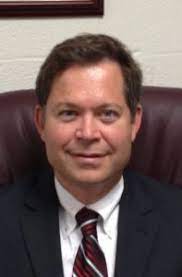
Michael Roy, MD, Col. (Ret.) is professor of Medicine and director of the Division of Military Internal Medicine at Uniformed Services University and director of Recruitment for USU’s Center for Neuroscience and Regenerative Medicine. He is a graduate of Brown University and Brown University School of Medicine. Dr. Roy completed an internal medicine residency and a general medicine fellowship at Walter Reed Army Medical Center, and retired as a Colonel after 24 years’ active duty in the Army. He has twice served as president of the Society for Brain Mapping and Therapeutics (SBMT), and is a Fellow of the American College of Physicians. He has authored more than 100 publications including the books Physician’s Guide to Terrorist Attack and Novel Approaches to the Diagnosis and Treatment of Post traumatic Stress Disorder. Dr. Roy is currently the principal investigator on multiple active studies seeking to improve the early identification and treatment of post traumatic stress and traumatic brain injury. Many of the studies incorporate cutting-edge technologies, including functional MRI to both detect PTSD and document a response to treatment, the use of virtual reality to enhance the treatment of PTSD, and the use of smart phones and tablet devices to reach out to patients and help them with their symptoms at a distance.
Mike Y. Chen

Kasif Nevzat Tarhan
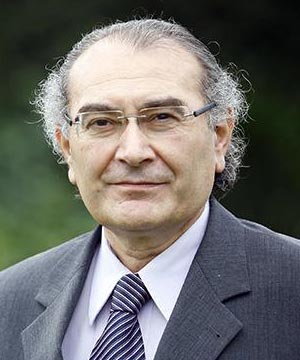
Nevzat Tarhan was born in Merzifon/Turkey in 1952. He finished Kuleli Military High School in 1969 and graduated from Cerrahpaşa Medical School Ístanbul University in 1975. Following his internship at GATA (Gülhane Military Medical Academy) he worked in Cyprus and Bursa garrisons at different military medical institutions. In 1982 he became a specialist psychiatrist at GATA. After his clinical services as a specialist at Erzincan and Çorlu Hospitals, he became an assistant professor(1988), an associate professor (1990) at GATA Haydarpaşa. He was promoted to colonel in 1993 and became a professor in 1996. Between 1996 – 1999 he worked at Yüzüncü Yıl University as faculty member and as an expert at Forensic Institution. He got retired on his own will. He took the representation of “Memory Center of America” in Turkey in 1998. Professor Tarhan has been the Chairman of the Board of NPÍSTANBUL, the first neuropsychiatry hospital of Turkey and also the founding Director of Üsküdar University. Professor Tarhan has more than a hundred publications 31 of which are international. He has also more then 25 published books. He has many distinguished awards and recognitions including: Currently, he is the President of Üsküdar University as well as a member of the Board of Society for Brain Mapping and Therapeutics (SBMT), which is headquartered in California, the United States America. He was part of the SBMT-International delegates who presented the Honorable US Congresswoman Maxine Waters with 2015 Pioneer in Healthcare Policy Award for her role in pioneering legislations, which culminated to advance diagnostics and therapeutics for Alzheimer’s Disease patients. Professor Tarhan is the President of SBMT-Turkey Chapter. He is Co-chairman of the second Annual (2015) G20+ World Brain Mapping and Therapeutic Initiative Summit in Turkey. He is chairman of the Turkish-SBMT Brain Mapping Initiative as part of the SBMT-G20+ World Brain Mapping and Therapeutics Initiative (G20+ WBMTI). Professor Tarhan speaks and write fluent English and has two children. He loves poetry and extremly well disciplined and respected amongst his colleagues in the field.
Reinhard Schulte
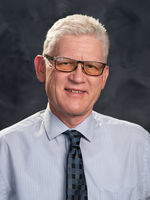
Dr. Reinhard Schulte has more than 18 years of experience in proton radiation therapy and proton radiosurgery. He has a doctorate in medicine (summa cum laude) and a diploma in physics from German Universities. He is licensed as a physician both in Germany and the United States, and is a board-certified radiologist in Germany. He is also board-certified in radiation oncology by the American Board of Radiology in radiation oncology in the U.S. He helped developing the proton radiosurgery program at the Loma Linda University Proton Treatment Center in 1993, which has been treating patients since then and is constantly modernized. Dr. Schulte has been involved in proton-therapy related research since 1996. He started a scientific initiative to develop proton computed tomography (pCT) at Loma Linda University in 2003 and has found interested collaborators in the U.S. and worldwide to support this research. His research is currently supported by a 4-year R01 grant from the National Institute of Health. At the James M. Slater Proton Treatment and Research Center, Dr. Schulte is responsible for translational research activities related to proton therapy and proton physics and radiobiology. In recent years, his research has focused on the development of new techniques and indications for proton radiosurgery, including functional CNS disorders and cardiac arrhythmia.
George Perry, PhD
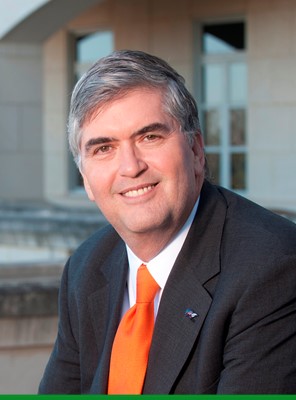
Professor of biology and chemistry at the University of Texas at San Antonio and the former dean of the College of Sciences. Editor-in-Chief of the Journal in Alzheimer’s Disease Co-Chair of SBMT Alzheimer’s Subcommittee. Research Interests Dr. Perry’s studies are focused on the mechanism of formation and physiological consequences of the cytopathology of Alzheimer disease. The lab has shown that oxidative damage is the initial cytopathology in Alzheimer disease. They are working to determine the sequence of events leading to neuronal oxidative damage and the source of the increased oxygen radicals. Current studies focus on the:
Harry Kloor
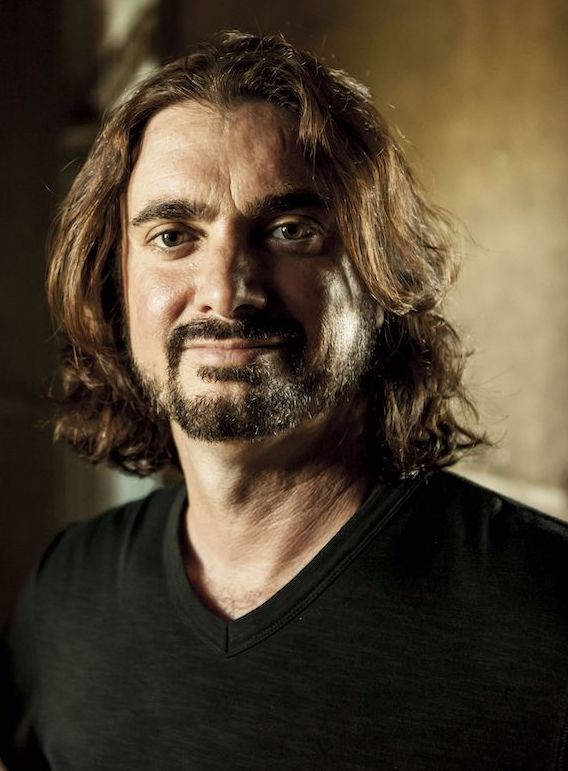
Dr. Harry Kloor is a successful serial entrepreneur, scientist, technologist, educator, policy advisor, author, and Hollywood filmmaker. He is the CEO and Co-Founder of Beyond Imagination; a company that has developed a suite of exponential technology solutions that deploys AI, AR, Robotics, Machine Learning and human-computer interaction technology to enhance and revolutionize the world’s workforce. Dr. Kloor has received numerous awards, most recently The Golden Axon Award from the Society for Brain Mapping & Therapeutics; most notable from the past, he was named ABC World News: Person of the Week honor in 1994. He worked as advisor for NASA, US SENATE, JPL, and numerous other science organizations. According to the US Council of Graduate Schools, Dr. Kloor is the only person in world history to earn two Ph.D.s simultaneously. His degrees are in Physics and Chemistry and were earned in 1994 from Purdue University. Dr. Kloor is a martial arts expert with 45 years of experience and numerous black belt degrees. Dr. Kloor was one of the five founding team members of XPRIZE and served at its CSO until 2005. He was on the founding team of Singularity University and taught at Singularity’s first summer program. In 2016 he created the ten million dollar Avatar XPRIZE, and in 2018 he co-created the Carbon Extraction Xprize with Jeff Holden and Jon Vein. Elon Musk funded this 100 Million plus prize purse in 2021. Dr. Kloor has worked with a large number of scientific organizations, universities, and companies to advance exponential technologies ranging from robotics, holographic capture, virtual and augmented reality, artificial intelligence, deep machine learning, sensor networks, IoT, volumetric capture, haptics, holography, etc. Dr. Kloor recently exited from Stem CC, a company he co-founded. In 2019, based on this work, the Word Economic Forum named Robotic Avatars as one of the top ten emerging technologies, in the same year Dr. Kloor chaired the Robotic sessions at AI for Good UN hosted conference in Geneva. 2020 WEF invited Dr. Kloor to speak on the economic impact Robotic Avatars will have in the coming decade. Dr. Kloor co-founded Rocket Racing League with Peter Diamandis and Bob Hariri. Dr. Kloor is also a professional filmmaker, with over 25 years of experience working in Hollywood. He has produced, written, and directed science fiction films and television series in Hollywood, starting with Star Trek: Voyager and the series and co-created the series Earth: Final Conflict. In 2007-2009, Dr. Kloor helped launch Taiwan’s animation industry by bringing his NASA/JPL Quantum Quest (QQ) film production to Taiwan. This marked the first big animation film ever animated in Taiwan. This film was designed to educate and inspire kids about the Cassini-Huygens space mission and science in general. This is the only film that Neil Armstrong participated in his life. He is currently developing a range of science fiction TV and film projects for Hideaway films, and working on several TV projects with famed showrunner Tim Kring (Heroes). Prior to Beyond Imagination, Dr. Kloor was the founder of Stem CC Inc.– a stem cell company that was sold in 2018 to Celularity, one of the world’s most cutting edge clinical-stage cell therapeutics companies (founded by Peter Diamandis and Bob Harari). Dr. Kloor also sits on the board of Brain Mapping and Therapeutics Society, and serves as their Chief Scientific Advisor and Educational Outreach Coordinator.
David Baron, DO, MSEd
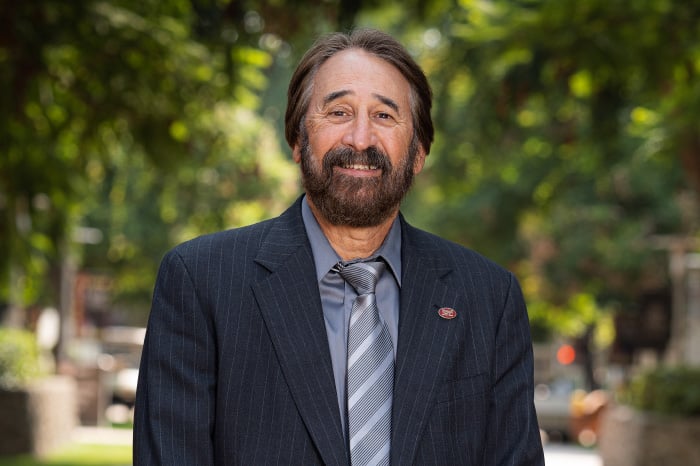
Currently working as a tenured Professor at Western University of Health Sciences, research Professor at Claremont Graduate University. David Baron, DO, MSEd, is Senior Vice President and Provost of the Western University of Health Sciences and serves as Chief Academic Officer of the university. He is responsible for academic, accreditation, and budgetary affairs. Dr. Baron joined the university in May 2018 after serving for eight years in roles within the Department of Psychiatry at the Keck School of Medicine, including Vice Dean for Global Health, Professor of Psychiatry and Neurosurgery, Vice Chair of the Department, and Chief of Service at Keck-USC Hospital. He received his DO degree from the Philadelphia College of Osteopathic Medicine (PCOM) and a Master of Science in Education from the University of Southern California (USC). He is the former Deputy Clinical Director of the National Institute of Mental Health (NIMH), former President of the American College of Neuropsychiatry and the Group for the Advancement of Psychiatry, and chaired the Department of Psychiatry at Temple University School of Medicine from 1998-2010. Dr. Baron was named a National Fulbright scholar in 2017-18 and conducted his research as Distinguished Chair in Brain Research at the University of Calgary. He also is the recipient of a Fulbright Specialist Award.
Eric Kandel
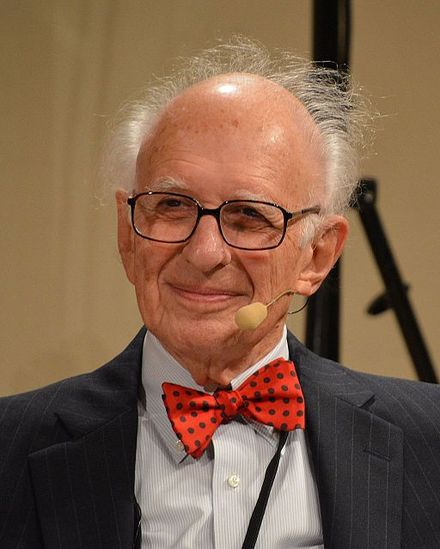
Eric Richard Kandel (German: [ˈkandəl]; born Erich Richard Kandel,[citation needed] November 7, 1929[2]) is an Austrian-born American[2] medical doctor who specialized in psychiatry, a neuroscientist and a professor of biochemistry and biophysics at the College of Physicians and Surgeons at Columbia University. He was a recipient of the 2000 Nobel Prize in Physiology or Medicine for his research on the physiological basis of memory storage in neurons. He shared the prize with Arvid Carlsson and Paul Greengard. He is a Senior Investigator in the Howard Hughes Medical Institute. He was also the founding director of the Center for Neurobiology and Behavior, which is now the Department of Neuroscience at Columbia University. He currently serves on the Scientific Council of the Brain & Behavior Research Foundation. Kandel’s popularized account chronicling his life and research, In Search of Memory: The Emergence of a New Science of Mind,[3] was awarded the 2006 Los Angeles Times Book Prize for Science and Technology.
